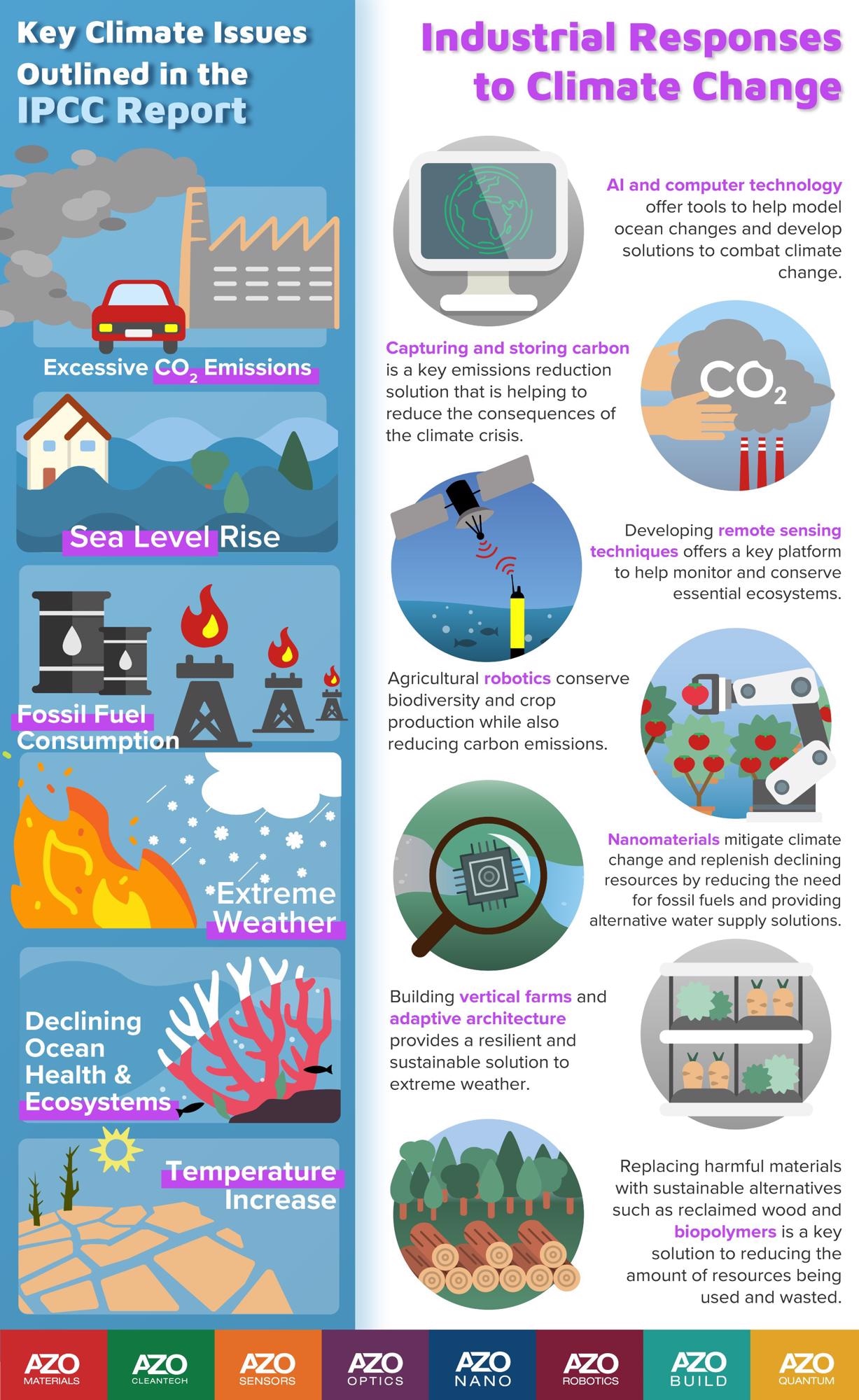An increase in severe agricultural droughts, a rise in global temperature from 1.5 to 2 ºC by 2040, lack of food security, and variable effects on ocean health and its ecosystem are a few likely examples of what is to be expected if current efforts are not changed.
Human influence has warmed the climate at a rate that is unprecedented in at least the last 2000 years.
The 2021 Physical Science Basis Summary for Policymakers, IPCC, 2021
Anthropogenic actions are the primary catalyst for these climate outcomes. Adaption is vital to alter the Earth's climate trajectory; otherwise, vital resources, ecosystems, and livelihoods will be lost. Novel approaches from the field of robotic and computer engineering are a significant step towards overcoming the climate change crisis.
The IPCC Report Series
AZoRobotics is taking a deeper look at how different areas of the robotics industry are responding to climate change issues highlighted by the IPCC’s 2018 and 2021 reports.
Here, a collection of articles has been curated that explore a particular advancement or technological adaption, discussing its relationship to climate change. An overview of the topic will be provided along with associated limitations and market relevance before exploring whether this strategy would be impactful in offsetting related issues, such as global warming or lack of resources.
Focusing on one area of robotics allows the unique opportunity to take a sector-specific view on the innovations behind climate change mitigation. Furthermore, this series highlights the significance of research and development efforts to overcome the ongoing climate crisis.

Image Credit: Sara Lopez Segura
AZo Robotics’ IPCC Industrial Response to Climate Change Editorial Series explores the growing field of agricultural robotics. Fluctuations in weather patterns, increased flooding, and a future where food security is scarce evidence the need to improve agricultural technologies. Robotic irrigation systems like CASCADE could help to revolutionize how farmers control their water usage, preventing unnecessary waste. Companies like Ocado are utilizing machine learning to optimize the food available for consumers, cutting down on food waste in the process.
The effect of climate change on ocean health and ecosystems is unavoidable. However, by understanding the extent of these ecological changes, adaptive preservation strategies can be deployed. Using machine learning and artificial intelligence neural networks, OcéanIA hopes to improve the modeling tools used to dissect ocean behavior.
Technologies within the robotics field have the capability to impact a wide range of industrial and research areas. Whether it is improving the stability of essential resources like food and water or tracking the developments of a dwindling ecosystem to design effective solutions, this sector is sure to be at the forefront of overcoming climate change.
References and Further Reading
IPCC, (2018) Summary for Policymakers. In: Global Warming of 1.5°C. An IPCC Special Report on the impacts of global warming of 1.5°C above pre-industrial levels and related global greenhouse gas emission pathways, in the context of strengthening the global response to the threat of climate change, sustainable development, and efforts to eradicate poverty [Masson-Delmotte, V., P. Zhai, H.-O. Pörtner, D. Roberts, J. Skea, P.R. Shukla, A. Pirani, W. Moufouma-Okia, C. Péan, R. Pidcock, S. Connors, J.B.R. Matthews, Y. Chen, X. Zhou, M.I. Gomis, E. Lonnoy, T. Maycock, M. Tignor, and T. Waterfield (eds.)]. World Meteorological Organization, Geneva, Switzerland. In Press
IPCC, (2021) Summary for Policymakers. In: Climate Change 2021: The Physical Science Basis. Contribution of Working Group I to the Sixth Assessment Report of the Intergovernmental Panel on Climate Change [Masson-Delmotte, V., P. Zhai, A. Pirani, S. L. Connors, C. Péan, S. Berger, N. Caud, Y. Chen, L. Goldfarb, M. I. Gomis, M. Huang, K. Leitzell, E. Lonnoy, J.B.R. Matthews, T. K. Maycock, T. Waterfield, O. Yelekçi, R. Yu and B. Zhou (eds.)]. Cambridge University Press. In Press.